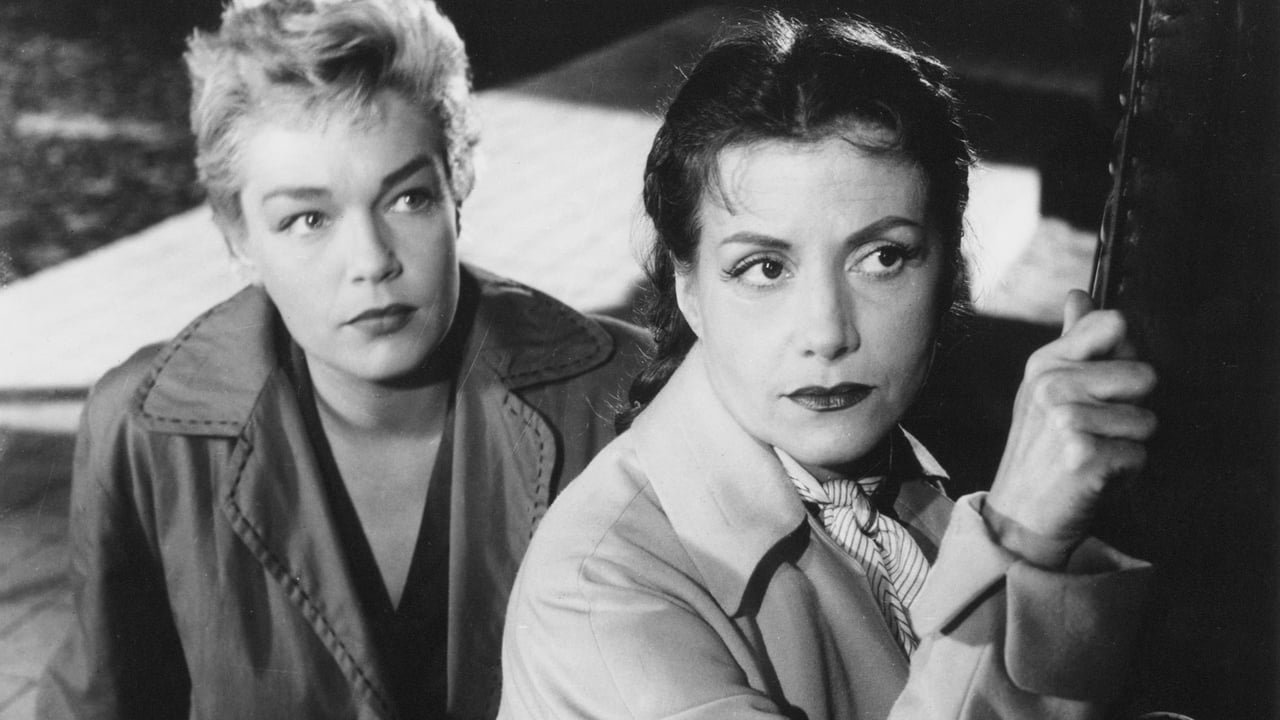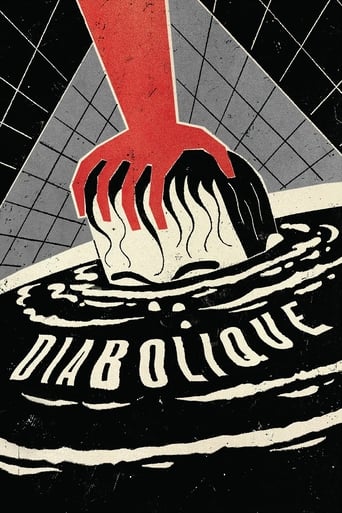

Since the age of 6, I've lived in the village where the school scenes were shot (that castle was at the time abandoned and Clouzot wanted to buy it to get his studios inside, but it was too expensive, now it's the Town Hall since 1968). Each time I went to school (not the movie's one), I kept thinking of that horrific movie and when I saw it at 15, I was quite impressed, discovering Clouzot's Noir filmography.Like the townspeople watching at the shooting and how the beautiful castle had become sinister, full of mud all around. During the shooting since three weeks, all the team was completely sad and sinister, shooting night and day. They got more joyful when eating in the local restaurants. A lot of villagers came at the gate to watch with excitement all the famous team shooting one of the most well known classic thrillers. Clouzot never shot again in that village, and no other movie was shot there.
... View MoreI watched 'Diabolique' for the first time in 2017, which means 62 years after its initial release in theaters and yet it managed to completely knock me off my feet with Henri-Georges Clouzot's meticulous direction and an ultimate reveal which even after all these years has the power to knock anyone's socks off. 'Diabolique' is truly a timeless piece of work.
... View MoreIf there is a better psychological thriller, I'd like to see it. Michel is a nasty master at a school where two young women work. They despise him. He is cruel to them. He is cruel to the students. When the have had enough they decide to kill him. They invite him to their place and drug him, later drowning him in a bathtub. The body is easily gotten rid of. I won't say any more because it would ruin everything. This will keep you on the edge of your seat. This has incredible pacing and atmosphere. There is that plotting where one wonders when the next shoe will fall. This is so Hitchcock-like. Amazing.
... View MoreApparently Hitchcock tried to buy the rights for this film after reading the book it is based off of, and as prestigious as Hitchcock is, it's hard to imagine it would be any better than this.The plot is rather simple. Two women, one in an abusive relationship, Christina Delasalle, and one who used to be with the same man, Nicole Horner, attempt to murder the abusive husband, Michel Delasalle. But these murderers aren't cold people, or at least Christina isn't, and if she was, then there would be no tension. Nicole on the other hand, is a bit more mysterious. She is separated from Christina by poles and many other environmental objects in the shots early in the film, but as it progresses Christina begins to trust her a bit more. And so do we. But strange occurrences begin to happen, and as the guilt and paranoia begins to nag at Christina, we begin to feel the same sense of paranoia. Subtle things will happen in this film just to throw you off, even for a second. Such as holding a shot for just a little too long, or switching to another unrelated group of people walking by. And when I say this film constantly keeps you guessing, I mean that. Just when you think you've figured out what's going on, it will send you down another long winding road quickly. Even after the film is practically over (after one of the most suspenseful and surprising endings of all time), the VERY last shot of the film ends on a rather ambiguous note.
... View More